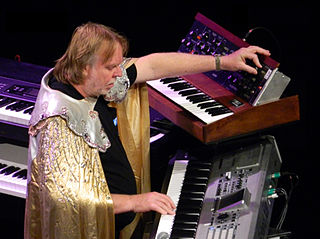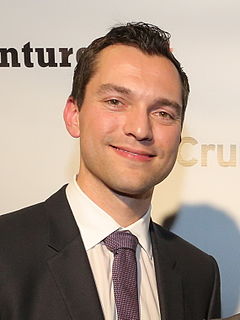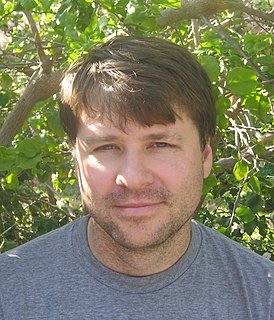A Quote by Jeffrey Pfeffer
Many of our students want to do what they have done and that has made them successful thus far in their lives: play by the rules, and do what is expected. But as much social science research and writing by Malcolm Gladwell, among others, make clear, the rules are mostly created by those already in power so obtaining power often entails standing out and breaking rules and social conventions.
Quote Topics
Among
Breaking
Breaking Rules
Clear
Conventions
Created
Done
Entails
Expected
Far
Lives
Made
Make
Malcolm
Many
Mostly
Much
Obtaining
Often
Others
Our
Out
Play
Power
Research
Research And Writing
Rules
Science
Science Research
Social
Social Science
Standing
Standing Out
Students
Successful
Them
Those
Thus
Want
Writing
Related Quotes
Public lives are lived out on the job and in the marketplace, where certain rules, conventions, laws, and social customs keep most of us in line. Private lives are lived out in the presence of family, friends, and neighbors who must be considered and respected even though the rules and proscriptions are looser than what's allowed in public. But in our secret lives, inside our own heads, almost anything goes.
To create a community of radical scholars, men and women who recognize that rules and social conventions are arbitrary, but have mastered them nonetheless, a community which shares such a scorn and disrespect for the present society that it can embrace the whole bundle of rules and subvert them thereby, that should be our goal.
I've argued that many of what philosophers call moral sentiments can be seen in other species. In chimpanzees and other animals, you see examples of sympathy, empathy, reciprocity, a willingness to follow social rules. Dogs are a good example of a species that have and obey social rules; that's why we like them so much, even though they're large carnivores.
It grants you the power to judge others and feel superior to them. You believe you are living to a higher standard than those you judge. Enforcing rules, especially in more subtle expressions like responsibility and expectation, is a vain attempt to create certainly out of uncertainty. And contrary to what you might think, I have a great fondness for uncertainty. Rules cannot bring freedom; they only have the power to accuse.
Those who live as though God sets the rules are not going by their own rules. That is the self-sacrifice, or selflessness, that peace more often than not requires. Those who insist on going by their own rules cannot make that sacrifice. They are the steady adherents of (global) conflict because they are forever fighting both themselves and others to do whatever they think that they want to do.
It is paltry philosophy if in the old-fashioned way one lays down rules and principles in total disregard of moral values . As soon as these appear one regards them as exceptions, which gives them a certain scientific status, and thus makes them into rules. Or again one may appeal to genius , which is above all rules; which amounts to admitting that rules are not only made for idiots , but are idiotic in themselves.
There are comedic rules and formulae and, while these tenets should be respected, especially by a newcomer, perversely you can still succeed by openly contradicting them. Because comedy is about breaking the rules. Even its own rules. Though, as with many disciplines, it is wise to master the basics before you attempt to subvert them.
These are party-sanctioned debates. This is a presidential election, you show up at the debates. These are the rules. We have a series of unwritten rules of how campaigns are run, and everybody has followed those rules consistently over the decades. And no one has really even seriously thought about breaking them.
If we want to create new rules of globalization, then we can't just think in terms of the nation state. The nation state has long offered protection. But it suffers from the fact that many citizens increasingly fear that it can no longer protect them: The threat of transnational terrorism is growing. Freedom of movement rules in Europe facilitate social dumping. Regardless of the make-up of the next government, it must have clear ideas on how to overcome the lack of direction of recent years.



































